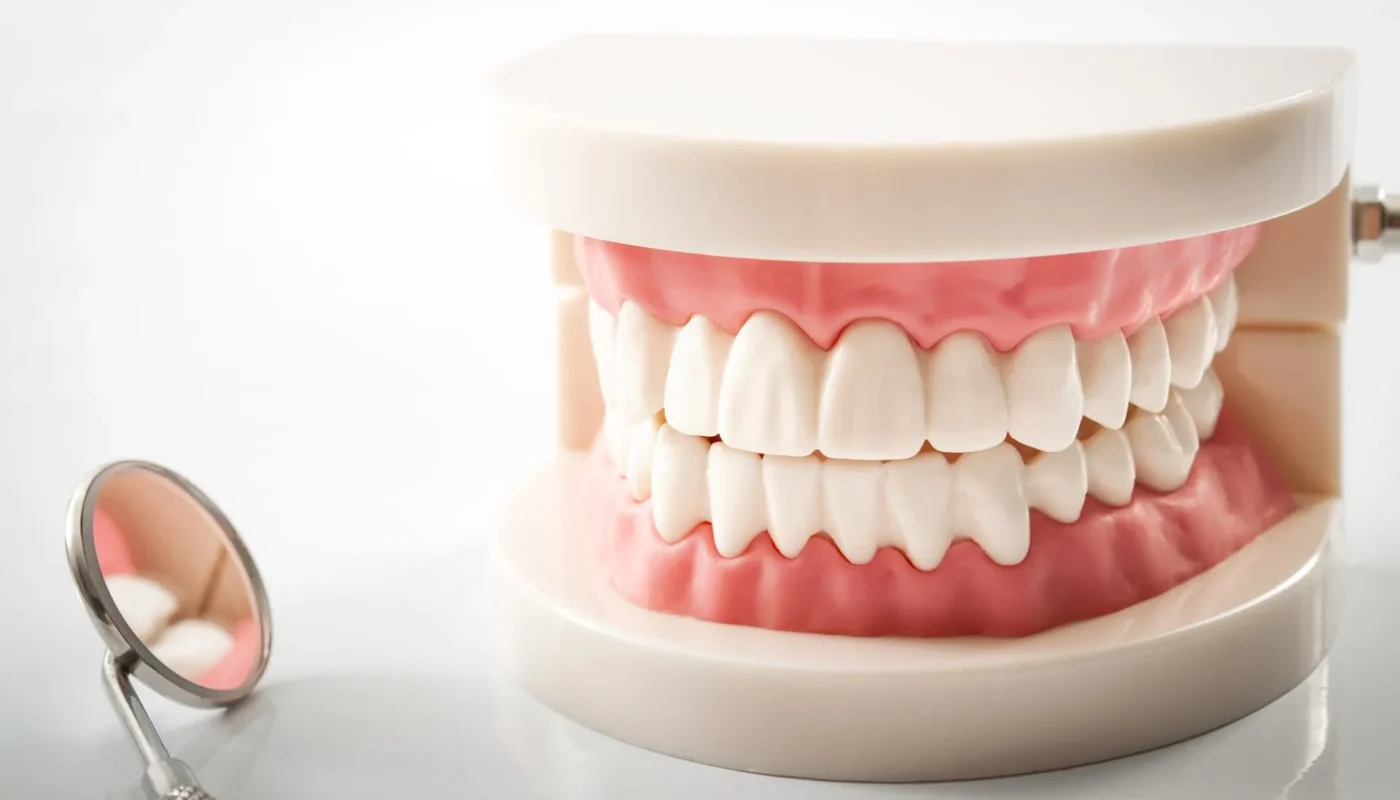As we age, our teeth often start to decay, weaken, or get knocked out due to various reasons like gum disease, injury or other health conditions. For many individuals who face tooth loss issues, dentures offer an affordable and effective solution to regain the ability to chew and speak properly. In this article, we will explore some key aspects of dentures.
What are Dentures?
A denture is a removable replacement for missing teeth and surrounding tissues. Dentures are artificially constructed and may consist of one or more false teeth anchored to plastic bases molded to fit the gums. Partial dentures replace a limited number of missing teeth, while full dentures are used when all natural teeth are gone. Dentures are external appliances, not permanent replacements like dental implants.
Types of Dentures
There are two main types of dentures:
– Complete Dentures – Used when all teeth in an arch (maxillary/upper or mandibular/lower) are missing. Complete dentures are comprised of a plastic base and artificial teeth.
– Partial Dentures – Used when some natural teeth remain in the dental arch. Partial dentures have plastic bases that cover the gum ridge and replace missing teeth. Clasps or other connectors are used to retain partial dentures in place.
When to Consider Dentures
Some common reasons to consider dentures include:
– Tooth Loss – If you are missing many teeth, dentures allow rebuilding the normal appearance and function of your smile. They improve ability to chew various foods.
– Oral Health Issues – Conditions like advanced gum disease, tooth decay or severe wear and tear leading to extractable natural teeth necessitate getting dentures.
– Aesthetic Concerns – Loss of teeth can affect self-esteem and ability to smile confidently. Dentures address functionality and appearance issues.
– Age-Related Changes – As people age, bone and gum recession happens naturally. This often translates to loose teeth or inability to replace missing teeth with dental implants. Dentures become the viable option.
– Financial Considerations – Dentures provide a more cost-effective solution compared to multiple dental implants or bridges in some clinical situations.
Benefits of Getting Dentures
There are numerous advantages to getting custom-made Dentures fitted by a skilled prosthodontist, including:
Improved Appearance and Confidence
Dentures, when fabricated properly, can restore a very natural looking smile. This boosts self-esteem and confidence during social interactions involving eating, speaking or smiling.
Enhanced Chewing Ability and Diet
With stable dentures in place supported by healthy oral tissues, chewing firm or tough foods becomes simpler. This expands dietary options considerably.
Preserved Bone Structure
Regular use of well-fitting dentures helps preserve the jawbones underlying the gums. This protects bone volume important for facial form and also allows future treatment alternatives if needed.
Affordability
For many patients who have lost multiple teeth, dentures emerge as a more affordable solution than getting expensive dental implants or bridges placed. Insurance may cover a part of the denture cost too.
High Success Rates
When dentures are fabricated skillfully by an experienced dentist using contemporary techniques and materials, the success rates of dentures satisfying patients are very high. Proper maintenance also ensures longevity.
Adjustable Retention and Stability
Loose or ill-fitting dentures can sometimes be relined or remade to achieve better hold. This helps retain dentures in the mouth effectively for speaking and eating.
Making the Adjustment to Dentures
While dentures replace missing natural teeth functionally, it takes time adjusting psychologically and getting used to the notion of having removable artificial teeth. Here are some tips for adapting to the change:
– Be Patient – It requires practice of a few weeks for the muscles, lips and tongue to re-learn positioning and movements for clear speech and normal chewing.
– Use a Soft Diet – Gradually add solid foods over few days as the new biting feels get established. Start with mashed, soft blended dishes and work back to regular meals.
– Apply Denture Adhesive – Products like fixative creams or pastes temporarily strengthen denture bond for enhanced retention during eating if slipping happens initially.
– Visit Your Dentist – Adjustments in the first few months by a dental professional can resolve minor issues with sore spots or poor fit. This speeds up the comfort process.
– Practice Smiling – Look at yourself often in the mirror while smiling. This conditions you psychologically to appreciate your new appealing smile.
– Consider an Implant Retained Lower Denture – For those who cannot adapt to conventional lower dentures, an implant-supported lower option provides greater retention and stability for an enhanced quality of life.
With commitment to handle minor discomfort in the first few weeks and follow dentist’s post-placement care instructions diligently, adjusting to full or partial dentures soon becomes second nature leading to high patient satisfaction levels. The benefits they provide restore oral function and enjoyment of a healthy diet.
Denture Care Guidelines for Longevity
To keep dentures serving well for years to come, daily hygienic care and periodic professional cleanings every 6 months are essential as follows:
Brushing and Soaking
Brush dentures using a soft-bristled toothbrush and non-abrasive denture cleaner solution after each use to dislodge trapped food and plaque deposits. Soak in cleaner solution at night too for thorough self-disinfection.
Handling with Care
Be very gentle while removing and inserting dentures to avoid breakages. Don’t warp dentures by over-clenching or placing them under pressure when not being worn.
Relines over Time
Natural jawbone resorption happens, requiring denture relines every 2-3 years as the gums shrink. This maintains proper fit and even pressure distribution.
Professional Deep Cleanings
Regular dental visits allow hygienists to provide professional ultrasonic cleanings that physically remove ingrained stains or plaque too stubborn to remove at home. This is critical for hygiene and avoiding infections.
Replacing Lost Dentures
Have replacement or backup denture sets made. All dentures have a limited lifespan and may need replacement after several years of regular use depending on oral condition.
*Note:
1.Source: Coherent Market Insights, Public sources, Desk research
2.We have leveraged AI tools to mine information and compile it



